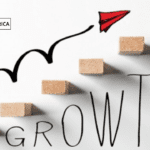Fana Haregot, a chemical engineer, marketing professional, and entrepreneur, grew up in the small town of Kwiha in Ethiopia’s Tigray region.
From her childhood struggles, she built a mission-driven enterprise that now empowers underserved communities through affordable, eco-friendly hygiene products.
Today, as the founder and CEO of Fana Hygiene Solutions, she leads a growing social enterprise that produces affordable, eco-friendly hygiene products designed to serve underserved communities.
Fana Haregot shared with Today Africa the story of Fana Hygiene Solutions and how it all began.
Tell us more about yourself
Raised in Kwiha, a small town in Ethiopia’s Tigray region, Fana grew up with a determination fueled by scarcity and resilience. Today, she is the founder and CEO of Fana Hygiene Solutions, a company born from personal hardship and driven by a mission to make hygiene products affordable for all.
“I was raised in a very low-income household where access to basic hygiene products wasn’t guaranteed,” Fana recalls. “That scarcity stayed with me and ignited a lifelong desire to make hygiene accessible for everyone, especially those who grew up like me.”
Fana’s journey is one marked by contrasts—between poverty and possibility, loss and hope, tradition and innovation. A chemical engineer by training, with a BA in Marketing Management, and about to complete her master’s in Impact Entrepreneurship, she embodies the blend of science, strategy, and social consciousness.
How did poverty shape the woman you are today?
Poverty, Fana explains, was more than an economic condition; it was a shaping force. It instilled in her a relentless drive to break the cycle that had bound her family and community for generations.
“My mother was my first role model,” Fana says, her voice steady but tender. “My mum was a single mother who managed to provide for us despite the hardships. She believed fiercely in education. She invested whatever little she had in me, in my future.”
Fana’s mother, a figure of strength and quiet defiance, saw potential where others might have seen despair. “She knew what kind of person I would become, even when I didn’t see it myself,” Fana says with gratitude. “She taught me resilience, responsibility, and that education was the only way out of poverty.”
Fana went on to say, “I owe all of the success that I have today to my mom. If she wasn’t that strong at that time, being a single mother, being from a low-income community, imagine, she could have messed up in so many ways, but she held on, you know?”

It is this early foundation—scarcity met with fierce hope—that now powers Fana’s vision. “I’m not just building a business,” she says. “I’m building hope, dignity, and opportunity.”
Read Also: How Christopher O. Fallah Empowers Liberia’s Unbanked & Offline Citizens
What inspired you to become an entrepreneur?
The seed for Fana’s company was planted early, in the pain of watching her younger twin siblings suffer repeated illnesses. Hygiene, she learned the hard way, was not a given but a luxury many could not afford.
“My twin brother used to be sick almost all the time,” she recalls. “Doctors said it was preventable, related to poor hygiene. But hygiene was a luxury we couldn’t afford.”
This personal pain turned into purpose. Armed with her chemical engineering knowledge and marketing skills, she saw a gap—affordable, eco-friendly hygiene products were sorely lacking.
“I didn’t have money. But I had a business plan. I pitched it to banks, microfinances, family, and friends.”
“I started Fana Hygiene Solutions in 2019,” she explains. “Then COVID-19 hit, and suddenly hygiene wasn’t a luxury anymore—it was a necessity. The pandemic accelerated our growth in ways I couldn’t have imagined.”
This means COVID-19 really helped in the growth of your business
“COVID-19 was a turning point,” Fana admits. “Before the pandemic, sales of our hand wash products were low. But then everyone realized they needed to wash their hands regularly.”
The pandemic thrust Fana’s company into the spotlight, creating demand for products many had considered non-essential.
“COVID really helped scale the business,” she says, “because it changed people’s mindset about hygiene.”
Tell us more about your business and products
“At Fana Hygiene Solutions, we have two categories. The first is household liquid detergents. The second is institutional hygiene liquid detergents. From laundry detergents and hand washes to dish washes, bleach, ceramic cleaners, and shampoos, the company is expanding to meet diverse needs.”

“I’m not just building a business, I’m building hope from that scarcity mindset—dignity and opportunity.”
One standout product is the drilling foam, used in deep water well drilling to ensure clean drinking water in rural areas.
“When I’m not at the factory, I mentor young entrepreneurs,” she says. “I’m passionate about helping young entrepreneurs in my community understand that they can create jobs, not just wait for employment.”
Through partnerships with American Corner, YALI, and ImpactHER, she trains youth in entrepreneurship, helping them avoid the pitfalls she faced. “I just share what I know,” she says. “So they don’t have to go through it alone.”
Read Also: How Buyiswa Twala is Reviving Dead Soil and Fighting Hunger in South Africa
What challenges did you face, and how did you overcome them?
Starting a manufacturing business is never easy, especially in a low-income, conflict-affected region. Fana faced a barrage of obstacles—lack of capital, skepticism as a young woman in a male-dominated industry, and then war.
“In 2020, war broke out in my region,” she says softly. “We had to shut down production, send our workers home, and flee for our lives. The factory was looted — we lost everything.”

The war’s devastation might have broken many, but not Fana. Her resolve hardened. “I asked myself, what can I control? I had to be courageous and restart.”
Pooling what little remained, she restarted manufacturing. “Our community needed us. Our employees needed us. My family needed me to be strong.”
How did you fund your business?
Fana’s journey into manufacturing, notoriously capital-intensive, began not with millions, but with a business plan, a promise, and her mother’s sacrifice.
“No bank wanted to take a chance on me,” she says. “But one microfinance institution was willing, if I had collateral.”
Fana had none. But her mother, once again, stepped in.
“She gave me the deed to her house,” Fana says, her voice breaking. It was a risk, but one that paid off. “We repaid the loan in about a year and a half. I was so proud.”
Without money to pay employees, Fana and her family worked without salary until the business could sustain itself.
“Accessing capital remains a challenge, but we keep thriving by reinvesting profits.”
What marketing strategies have you used?
Fana believes her customers are her greatest ambassadors. “We treat them like kings,” she says.
In the early days, word of mouth was vital. “Post-conflict, formal marketing channels were broken, so we relied on community trust.”

Social media storytelling, local radio, branded delivery vans, and awareness events have also helped grow the brand.
“Now we use TikTok, Instagram, LinkedIn, and even TV to tell our story and promote our products.”
Read Also: African Startup Stories of 16 Entrepreneurs We Interviewed
How did You build your team?
“No business can grow without the right team,” Fana asserts.
She hired experts in sales, HR, and finance—areas where she knew she needed support—while continuing to learn herself.
“The team must share your vision. Without that, your business will fail.”
Her commitment to aligning her team with her values has been key to the company’s resilience and growth.
What convinced you that your team is the best for you?”
Hiring, for Fana, is not about a set of questions. “You can ask all the interview questions — ‘Tell me about yourself,’ ‘Where do you see yourself in 10 or 5 years?’ — but that only scratches the surface,” she explains.

“Starting was hard. Restarting after losing everything was even harder.”
Instead, Fana hires based on recommendations. “I hire based on referrals because those who know the candidates best can vouch for their real impact. I call former employers to understand their strengths and weaknesses. Recommendations tell me far more than CV.”
But even beyond past performance, there’s one quality that Fana prizes above all: emotional intelligence. “Skills can be taught. If I show you how to make soap or detergent, you can learn. But the willingness to learn, the emotional intelligence to work well with others, and adapt — that’s crucial. That’s what I look for first.”
How is your business today and what does the future look like?
“We started with a 300,000 loan, and now I can say that we have moved from a local startup to a regional impact maker. We are recently scaling up our business from producing 20,000 liters per month to about 300,000 liters per month,” Fana says, eyes gleaming with pride.
“My mom gave me the deed to her house so I could secure a loan. That’s how Fana Hygiene Solutions started.”
“We’ve created about 30 permanent jobs, and I’m especially proud that nearly 75% of our workforce are women.”
But the growth is more than just numbers. Their next ambitious step is the launch of a retail stations to directly deliver to our customers, which will reduce the amount of plastics dumped into the environment every day, especially from liquid-infrared manufacturing industries.
Read Also: How Njemo Naomi Launched Youthkonnect Amid Cameroon’s Sociopolitical Crisis
What key lessons have you learned in your journey as an entrepreneur?
The path of entrepreneurship is rarely smooth, but Fana carries three lessons that anchor every decision.
“First,” she says, “purpose outweighs profit. My business solves a real problem. If you’re not solving problems, you’re not making a difference.”

The second lesson? “Community is everything. You cannot succeed alone. It’s the relationships you build and the people who support your mission that keep you going.”
And the third, which carries the tone of hard-earned wisdom: “Resilience is a superpower. You will fail. Our business failed once, but we started again from scratch. How you rise after falling—that’s what counts.
What advice would you give to others?
For many young people in Africa, the future often feels limited by circumstances. But Fana challenges that notion head-on.
“Your background does not limit your future,” she says firmly. “I come from a humble background, and many would expect me to fail. But I’m here, still thriving. What limits your future is your mindset. If you believe you can do it, then you will. There’s always a way if there’s a will.”
Contact or follow Fana Haregot:
Leave a comment and follow us on social media for more tips:
- Facebook: Today Africa
- Instagram: Today Africa
- Twitter: Today Africa
- LinkedIn: Today Africa
- YouTube: Today Africa Studio
















